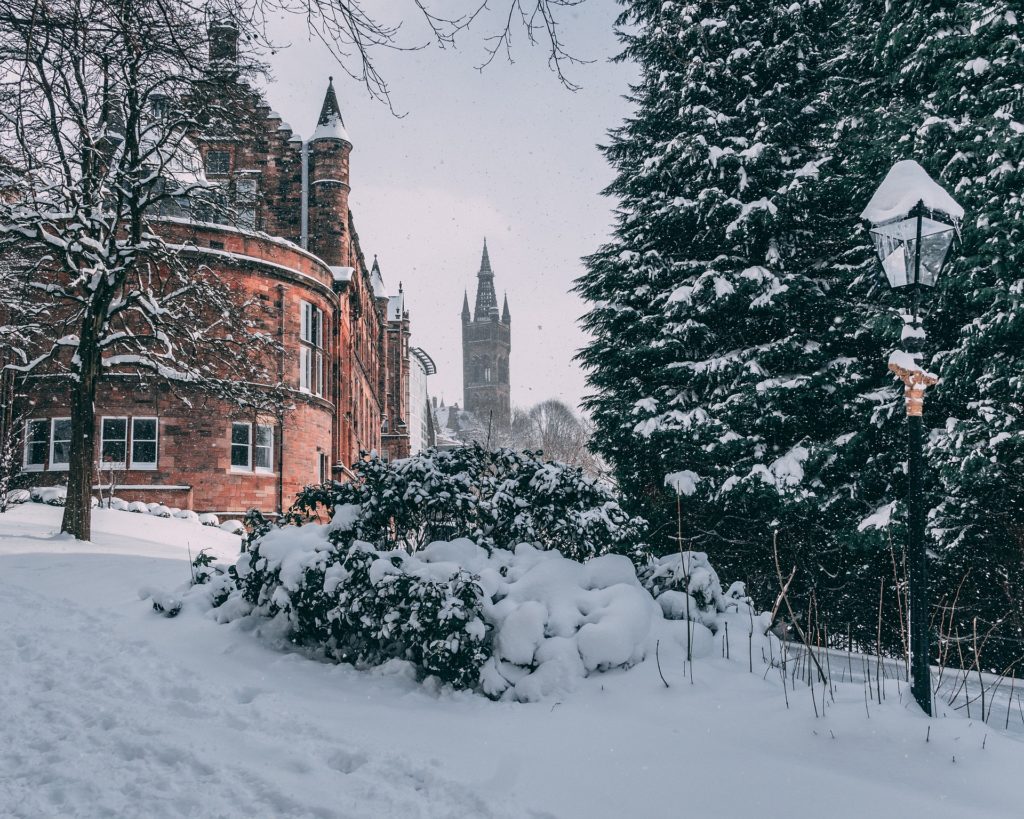Slow: snow
It only seems like five minutes ago that I was making terrible titular puns about the white stuff on here, but here were are again, at the start of spring, gazing out at snow drifts. Well, mostly I’m now gazing out at a grey rainy day destroying the snow drifts. But I doubt that’s the case everywhere in the UK right now.
The weather of the past week necessitated an amount of creative packing, as I made my way to London for my usual three-day stint of teaching and other work, both to ensure I had enough layers not to turn into an icicle, and to have sufficient basics on standby in case I got stuck in either direction. The journey to London on Tuesday was a bit slow but doable. The journey from London on Thursday was possible for me, just, and at a considerably reduced pace on open train lines, but many thousands weren’t so lucky.
I noticed something about the weather, though, that perhaps we can all learn from on non-blizzard days. See, most of the pavements I’ve had to walk on since Tuesday hadn’t been cleared or gritted (in London or in Suffolk). This meant slower going. We’ve had to walk with greater care, and take more notice of other people and things that we might end up slithering into. Cars have had to drive more slowly. Trains have run at lower speeds (if at all) and stations have been drenched and slippery. And snow flying into your face does also tend to affect your speed.
When we are forced to go more slowly, our interactions change. For one thing, however hazardous this weather might be, stuff covered in snow is pretty. Hills and forests, of course, but even wheelie bins and parked cars become rather scenic under a few feet of frosting. Endless photos and videos on social media feeds will back me up here. The world is transformed… so we look more. We might even stop and look. Or make a point of going out to a park or other open space to observe the effects of the weather. Our environment is different, and we get curious about it again.

Also, travel disruption has left people stranded altogether, deposited at the ‘wrong’ station, or left huddled on platforms in the vain hope that a train might arrive. If you stand together long enough, particularly in exceptional circumstances like this, you are more likely to end up talking to the people with you. I’ve seen people organising taxi shares, giving each other travel advice and lifts, helping those struggling with bags on slippery steps. Friends and colleagues taking each other in so that they aren’t without a bed for the night due to cancelled journeys. Extra places set around tables, extra rooms and sofas made up. I’ve also witnessed more direct interaction between commuters and rough sleepers than at any other time in London, with people stopping to offer food and money for shelters, to check if they have places to stay and clothes to keep out the cold. Charities have worked hard to spread the word about how to find rough sleepers as safe place for the night, too, with apps and phone numbers made readily available.
Unusual circumstances make us look up, in other words. They break regular patterns of behaviour that we have no reason to get out of unless we are shaken out of them: speaking to people on the train platform, acknowledging the less fortunate, admiring the landmarks and landscapes of our everyday lives. It’s a great reminder of the fact that we are so capable of co-operation, and care, and kindness when we take the time – and so often, we have been able to ignore our environment enough that we don’t take the time, because it’s basically benign and easy. When we must make time, and do, good things can happen. Perhaps that’s why new year (at least, when the snowy weather actually arrives in winter) is a good time to make resolutions: we look at the world differently when it looks different to us, snow-covered and inhospitable with every mechanical system we have come to rely on suddenly under threat.
So whilst March might not seem the ideal time for a new year’s resolution, perhaps a bit of snow-based resolve is worth considering. If we took that extra time, and looked around us a little more often – even when the possibility of snowboarding home is no longer on the table – we might benefit.

